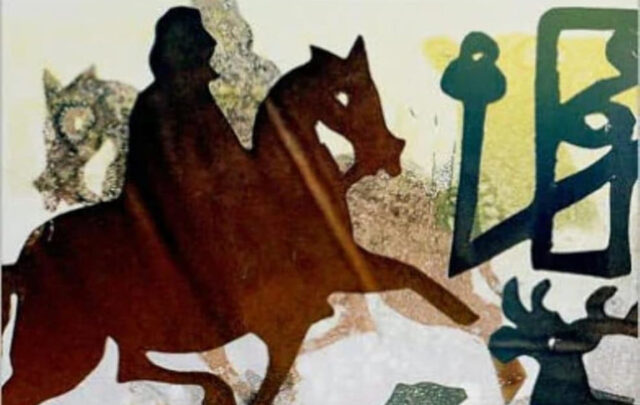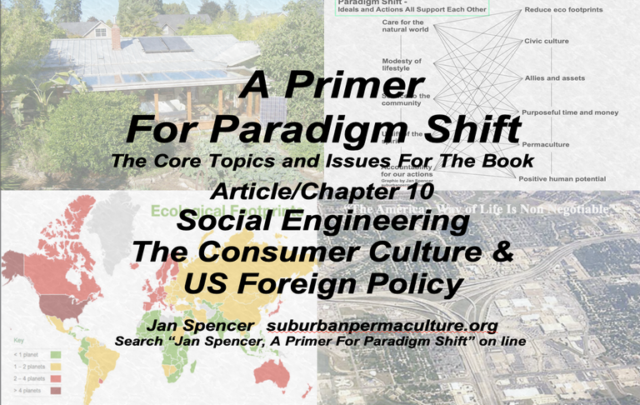In the summer of 2019 I was standing on the weathered deck of our shack-of-a-cabin on Orcas Island off the coast of Washington state. It was early evening and the low sun cast bands of diamonds across the smooth ocean surface. It seemed utterly unlikely that these would be the last moments of clear skies anyone on the West Coast would see for weeks.
As I watched, a wall of thick smoke rolled across the sparkling water, blotting out the sun, engulfing everything. It glided toward me like an unstoppable silent assassin. There was no escape, even there, out in the ocean, well away from the hundreds of fires ravaging forests across the region. I broke into deep sobs, sucking in acrid air, grieving the trauma we were inflicting upon the natural world, momentarily overcome by the sense of powerlessness to protect what I love.
This experience was dramatic but is really only one of countless times when the ever-present, background eco-grief rises to the surface and breaks through my defenses. Those of us who deeply love the natural world and pay attention to what humanity is doing to it learn to exist, and even experience joy, while carrying a constant state of grief and loss. Sometimes it’s acute like the event described above; sometimes it’s more chronic and pervasive. I live in a sleepy little cul-de-sac that I describe as “neighbor nirvana.” Over many years I have created something of an urban wildlife oasis here and my yard is always alive with bird song and action, feisty, comical squirrels, insects of many varieties and even the occasional raccoon and deer. Though it’s located near major highways and through-routes, all the wildlife and the many large, ponderosa and juniper trees throughout the neighborhood have made this a quiet, buffered space. Sadly, so very sadly, that’s now changing.
Central Oregon is one of the high-demand, fast growing regions in the country. Urban trees are being destroyed at a breakneck rate to make room for more buildings and roads. For months now, even my peaceful, nature-song filled yard has been marred by a constant din of back-up alarms and relentless trackhoe jackhammers breaking down millennia old rock formations. I can hear it in the background this very moment, even through the walls of this home and chattering flock of birds outside.
This past summer, a lone Golden Mantled Ground Squirrel showed up in my yard. None of us had seen one in this area before. He kept well fed on bird seed and peanuts and built some sort of a burrow under my wood pile. While I enjoyed seeing him amongst the menagerie, I was concerned how he got there. These guys tend to live in rocky areas and I suspect he panicked and fled when jackhammers started blasting out the rock formations nearby. One can only imagine how traumatic that must be for creatures who spend a good part of their time underground and are sensitive to sound and vibration. I hope to see him again this spring unless he’s found his way to more suitable habitat.
There is profound grief in witnessing the diminishment of the wild world. Climate anxiety and eco-grief are increasingly widespread conditions. A recent study of more than 10,000 young people aged 16–25 years old, living across 10 countries (including the U.S.), revealed that more than half (59%) reported being very or extremely worried about climate change, and 84% were at least moderately worried. Nearly half said that their feelings (sadness, anxiety, anger, powerlessness, guilt and helplessness) negatively affected daily life and functioning, and more than three-quarters find the future frightening and feel a sense of betrayal by adults in general and governments in particular. It doesn’t seem a stretch to say that eco-grief is a mental health crisis/ pandemic.
I have an intentional discipline of positivity, which is one of my resilience practices. However, another resilience tool is occasionally giving voice to the painful, darker feelings. For many of us a very challenging component of eco-grief is knowing that we too are part of the problem. We inflict harm on what we love. It’s almost impossible even for the most well-intentioned not to because we are existing within a system that is based on doing harm to nature. This aspect too has dramatic and more subtle aspects.
In what seems like another lifetime, I used to be a heavy equipment operator for the largest county in Washington state. There is so much environmental damage caused by that job, but one incident sticks out. I, a crew of laborers, and several dump trucks were sent to clear out and clean up a ditch leading to a large concrete culvert under a road. The ditch was deep and had kind of rounded out into a mini-pond in front of the culvert.
I reached in with the backhoe bucket and scooped a pile of mud and weeds. As soon as it cleared the water surface I could see it was teeming with crawdads and even some small fish. I jumped out of the hoe and started picking the living creatures out of the bucket and putting them in the water on the other side of the culvert before dumping the load into a dump truck. The guys on my crew scoffed at me but a couple started helping as well.
Each scoop brought up dozens of living beings, scrambling for survival. I did my best to rescue what I could and keep the guys helping but I wasn’t being paid to take all day rescuing animals. I was being paid to clear out the ditch line. Pretty soon I gave up and just started dumping them all in the trucks. It was awful, a small dagger to my psyche. I suspect at least some of the folks nearby jackhammering nature into oblivion suffer a similar wound.
While the event above is more obvious, I’m aware that it really was no worse than each time I drive, eat a non-vegan meal or purchase dog food for my beloved, definitely not vegan pooch. Certain levels of awareness are painful, doors that once opened can never be closed. I think that’s one of the main reasons many people choose not to get too engaged in environmental, animal rights, or social justice issues.
However, while some people may choose to avoid certain painful truths, an unprecedented number of people are aware of the damage being caused by many of our current human activities and are actively engaged trying to help humanity change course. This essay is for them, for everyone who loves, and grieves for, our Earth.
Below are some resources for managing this grief and maintaining wellbeing despite the challenges.
1) Get out into nature. This planet is still rich with beauty and wonder. Plenty of research shows that interacting with nature and experiencing wonder and gratitude are powerful wellbeing practices.
2) Adopt a Hallelujah Anyway attitude. There’s a gospel song called Hallelujah Anyway that is all about celebrating the good stuff even in the midst of the hard things. Notice your grief, respect it, then refocus on something positive and beautiful.
3) Be media savvy. I find it highly valuable to sign up for several positive news sources – Happy Eco News, Good News Network, etc. This isn’t about putting one’s head in the sand, but rather getting a more balanced diet of what’s actually happening in our world. It most certainly isn’t all bad.
4) Tips for Coping with Climate or Eco Anxiety by University of Colorado. This is a very good summary of the effects of eco-anxiety and grief and some steps to manage it in a healthy manner. These include taking action on pieces within our control, avoiding overload, etc. This site also provides links to numerous additional resources.
5) Good Grief Network is a non-profit organization based in the U.S. that helps people metabolize collective grief, eco-distress, and other heavy emotions that arise in response to daunting planetary crises.
6) Podcasts to help ease climate and eco-anxiety. A few podcasts that cover these topics.
Finally, keep the faith — in something — God/Source/Creator, humanity, nature’s ability to heal. Remember there are possibilities for positive change and unexpected outcomes that we can’t even imagine. There is so much more to this world and to reality than what we experience with our physical senses and intellect. Evolution happens and eventually this machine of Western consumerism will ebb and healthier ways of being will emerge. In the meantime, many of us will grieve, and love, and feel joy and live “hallelujah anyway.”
I close with a prayer written by a friend of mine, R. Dennis Wiancko:
Our Mother’s Prayer
Our Mother, Whose name is Earth
Hallowed be Your ground
And Your skies
And Your rolling seas
Your gardens thrive; Your spirit alive
Through woodlands, streams
Mountains and plains
Everywhere
Grant us this day our needs for tomorrow
And refresh us with Your living waters
Forgive us our mistreatment
As we would forgive those who cause You harm
Lift us from negligence, and deliver us from greed,
For Yours is the home, and the beauty,
And the life that sustains us,
And we would love, respect, and care for You
Now and ever, ever forward.





